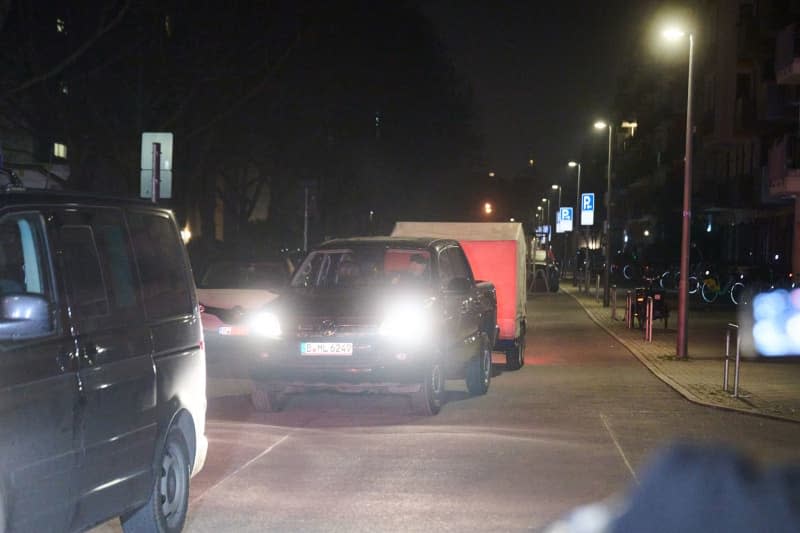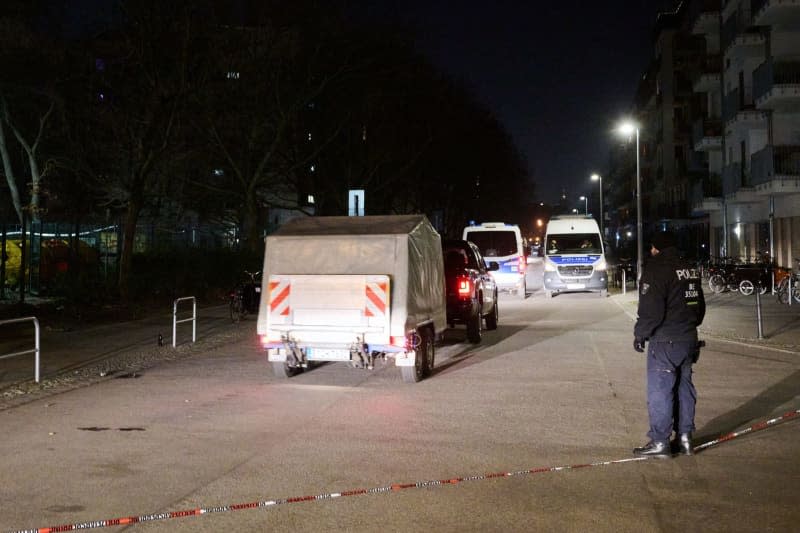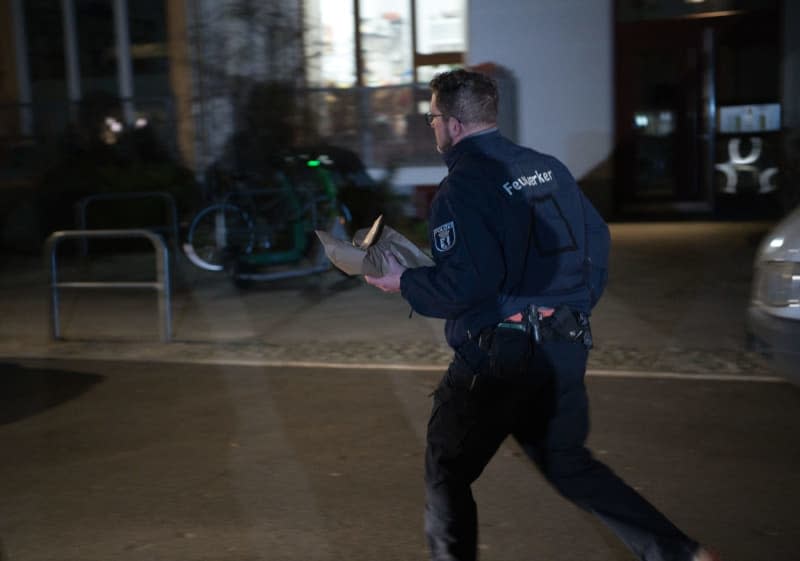Disbelief RAF's Klette hid for so long as 'war weapons' found in flat

"Heavy war weapons" were removed from the Berlin apartment of suspected far-left RAF terrorist Daniela Klette on Thursday as the son of a man the group famously murdered said it was "unbelievable" it had taken so long to capture her.
The 65-year-old had been on the run for 30 years and was arrested at the flat on Monday having been living there under a false identity.
A search of the flat concluded on Thursday with explosives, an anti-tank grenade, a Kalashnikov, a machine pistol and a handgun discovered along with ammunition, described by prosecutors as "heavy war weapons."
Experts removed the grenade and explosives using special equipment and they were rendered harmless at a secure location.
Police had previously evacuated the apartment block and people in a building opposite as well as partially cordoning off Sebastianstraße in the Berlin district of Kreuzberg. The residents have since been able to return to their home.
The Red Army Faction (RAF) was founded in 1968 by far-left extremists Andreas Baader, Gudrun Ensslin and Ulrike Meinhof, with members active well into the 1990s. It was also known as the Baader-Meinhof Gang.
The group justified its attacks back then with the aim of destroying the capitalist social order in West Germany. There is widespread speculation they were part funded by the Communist East German state and its secret police arm, the Stasi.
Jörg Schleyer, the son of former German business leader Hanns Martin Schleyer who was kidnapped and killed by the RAF in 1977, heavily criticized authorities on Thursday following Klette's arrest.
"The fact that an RAF terrorist was able to live undetected and unchallenged in the centre of Berlin for 20 years is unbelievable," he told the Bild tabloid.
Politicians must now investigate how this came to be and "think about the consequences," he added.
The RAF murdered more than 30 people during their reign of terror
in Germany from the late 1960s but disbanded in 1998.
Two other suspected terrorist members are still on the run - Burkhard Garweg and Ernst-Volker Staub.
Investigators suspect the duo are also in Berlin and a search is being intensified given the potential danger to the public if more weapons and explosives are unaccounted for.
Despite the time it has taken to find Klette, Schleyer's son said he was hopeful the other two could also be brought to justice soon while other crimes are solved.
"Even today there is still a realistic chance of solving far-left terrorist murders. That is reassuring for me and for the many relatives of the 34 RAF murder victims," he said, adding that the cases must not remain "unsolved and unpunished."
Authorities say Klette, Garweg and Staub were the third wave or generation of RAF operatives. Since the group's official disbanding, the trio are accused of attempted murder as well as a series of armed robberies between 1999 and 2016.



